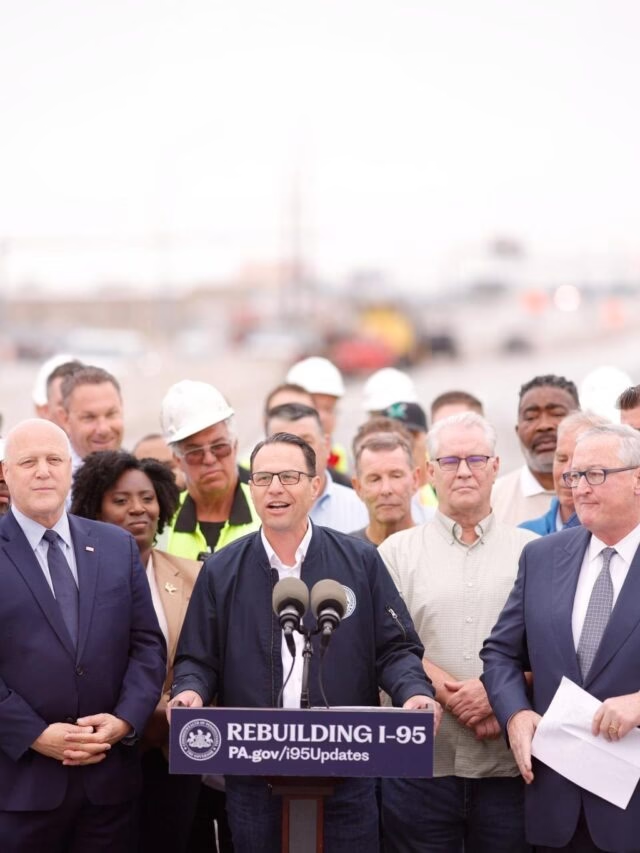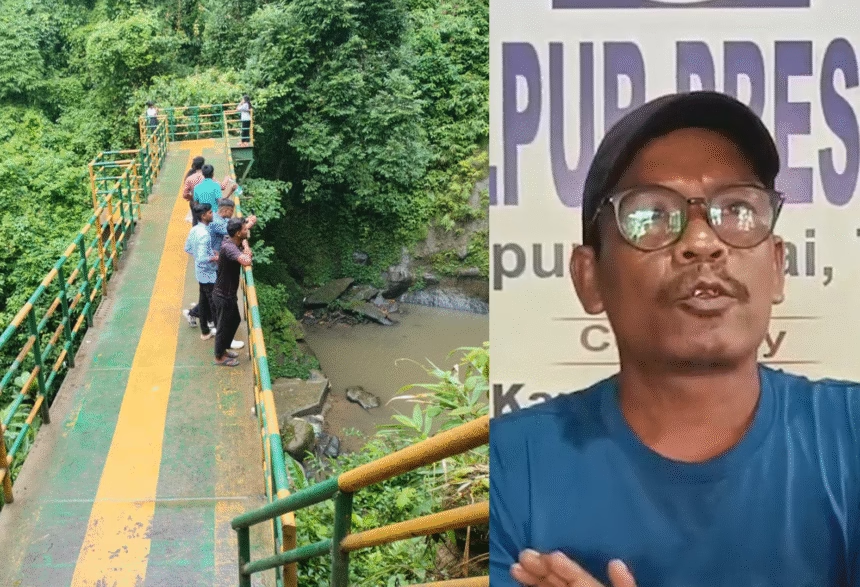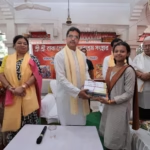Kamalpur, August 6 2025: A land dispute has come to light surrounding the newly inaugurated Surma Dongor Tuisoi Waterfall in Sanaiya Reang Para under Kamalpur sub-division, raising concerns over compensation for private land used in the development of the tourist spot.
The waterfall, often referred to as the “Liquid Moonlight” for its ethereal beauty, was officially inaugurated on September 19, 2024, by Tripura Chief Minister Dr. Manik Saha, in the presence of Tourism Minister Sushanta Chowdhury, MLA Manoj Kanti Deb, and local MLA Swapna Das (Paul). Located in the Surma Assembly Constituency, the site has rapidly become a popular tourist attraction, drawing hundreds of visitors daily who brave nearly 800 stairs to witness the stunning natural cascade.
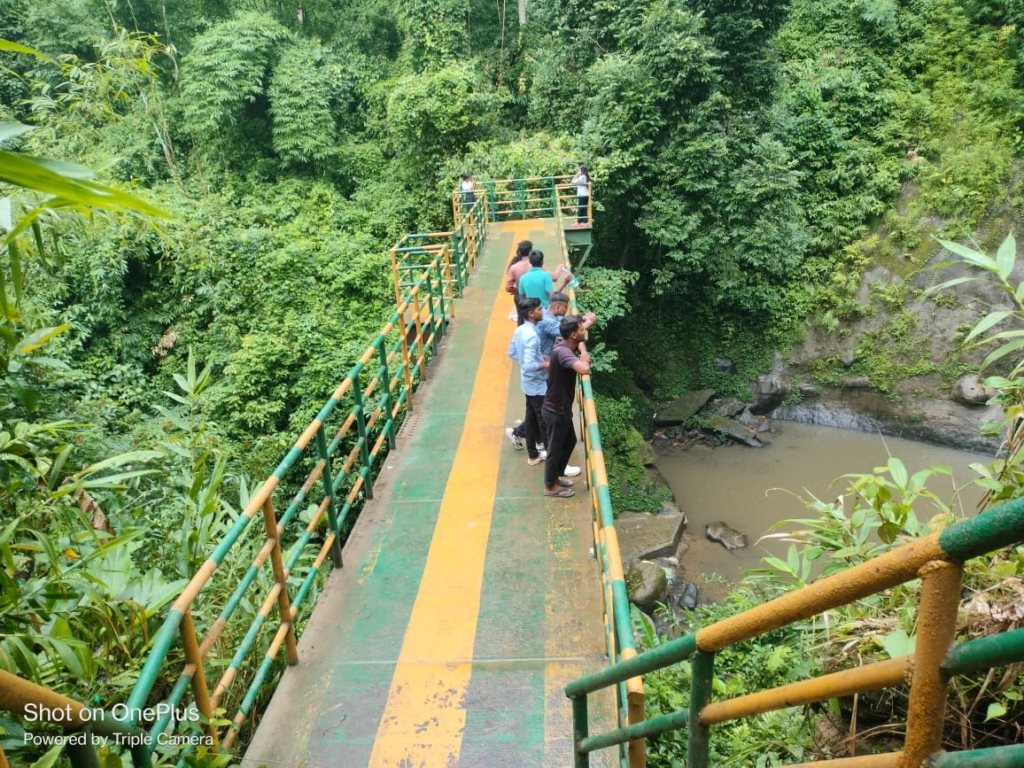
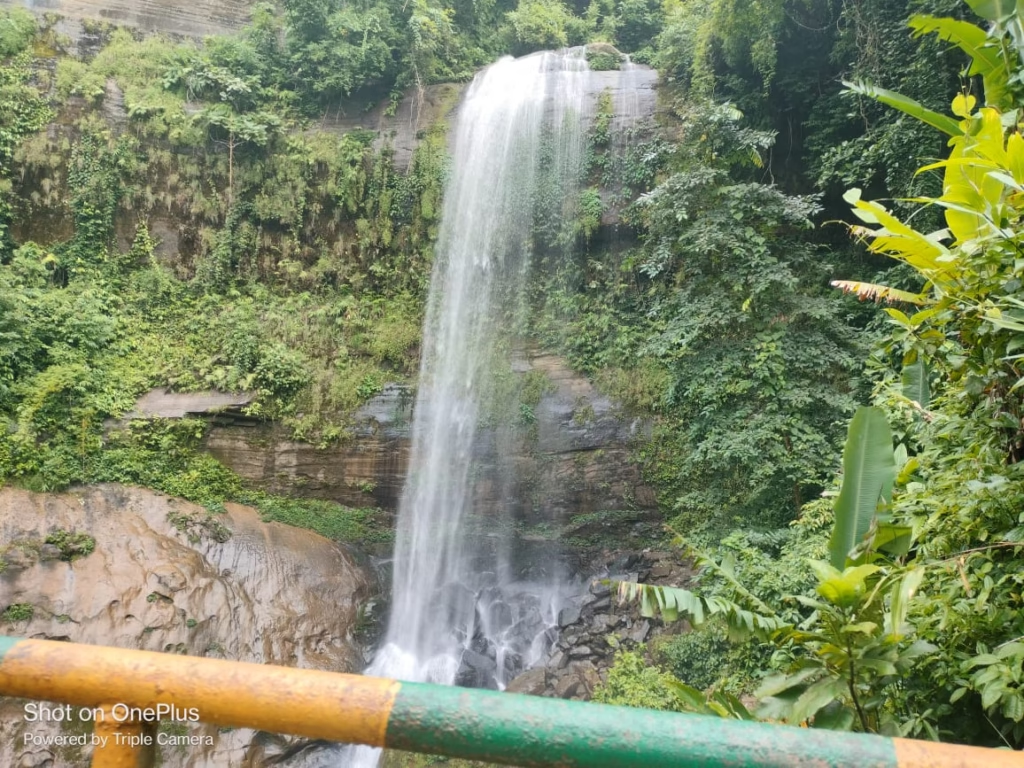
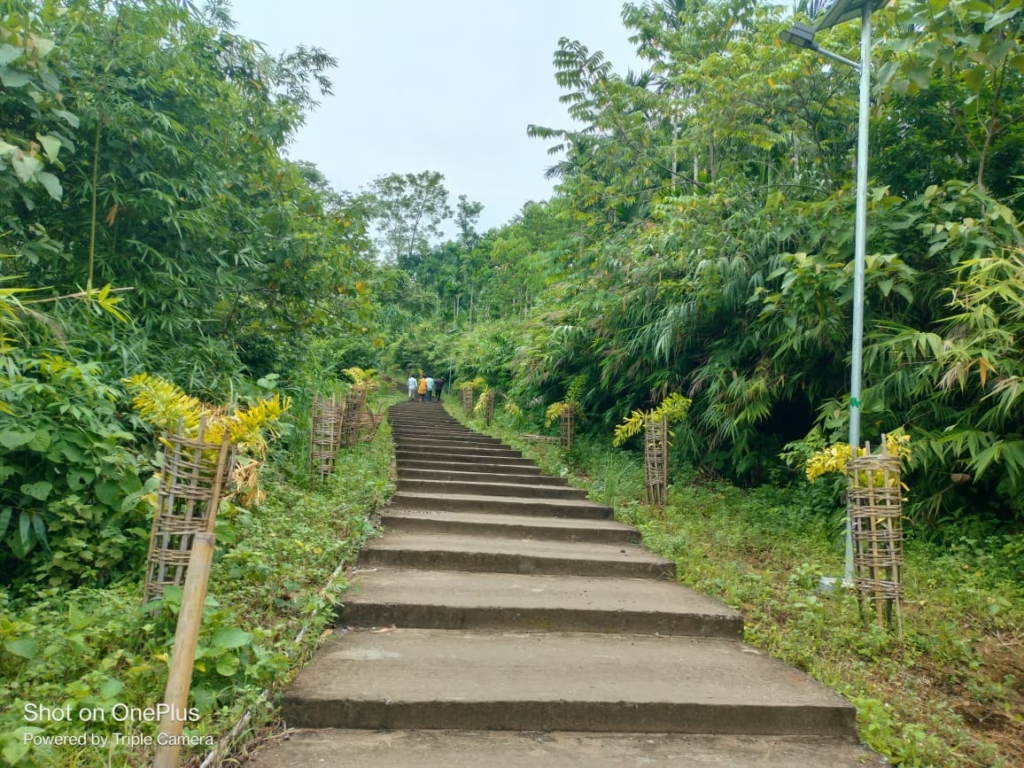
However, local resident Thanga Darlong has raised a serious concern. He claims that approximately 100 stairs of the access route to the waterfall pass through his patta (legally owned) land, including a portion of his cultivable area. During the construction phase, nearly 250 of his betel nut trees were cut down. At the time, he was assured by officials that he would be compensated for both the land and the trees.
Despite nearly ten months having passed, Thanga Darlong says he has received no compensation whatsoever.
Speaking at a press conference held today at the Kamalpur Press Club, Thanga expressed his frustration, stating:
“I appreciate the government’s effort to promote tourism in our area. But how is it fair to take land from a poor man like me without giving any compensation? This is my only livelihood.”
Thanga mentioned that he had written to the Managing Director of Tripura Tourism Corporation on October 31, 2024, seeking compensation for his land and the trees. However, he has not received any response to date.
He has now warned that if justice is not delivered, he will be compelled to approach the court for legal redress.
The matter has sparked discussions about land rights, fair compensation, and the importance of transparent dealings in public projects, especially when local livelihoods are involved.


